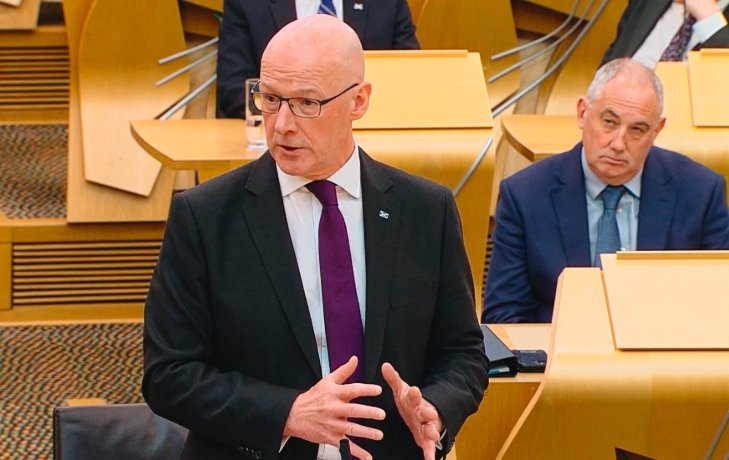In a key address in Glasgow on January 22, 2025, First Minister John Swinney highlighted his aspirations for a new migration policy aimed at tackling Scotland’s growing demographic challenges and ensuring the nation’s economic prosperity. Central to his proposal is the retention of skilled international students, a crucial element in Scotland’s future workforce.
Addressing Scotland’s Population Challenges
The First Minister’s speech came at a critical time for Scotland, as the country faces an aging population. By 2045, the number of individuals aged 65 and older is expected to grow by almost a third, while the number of children is projected to decrease by nearly a fifth. These shifting demographics pose a significant challenge to the country’s economic growth and labor market sustainability.
In his address, Swinney acknowledged that Scotland’s population could potentially face a severe imbalance between an aging workforce and a shrinking younger population. To counter this, he suggested a tailored migration policy that would help attract and retain the younger, highly skilled individuals needed to fill gaps in various sectors. By working with the UK Government, Scotland hopes to develop a policy that aligns with both national and regional needs.

Migration: A Key Solution for Economic Prosperity
The proposal emphasizes migration as a strategic tool to support economic growth in Scotland. First Minister Swinney argued that, while Scotland shares the same overarching migration policies as the rest of the UK, there is a pressing need for a more nuanced approach that caters specifically to Scotland’s unique demographic challenges.
The central focus of the policy would be on retaining international students who come to study in Scotland, encouraging them to remain and contribute to the country’s workforce after graduation. With its world-class universities, Scotland is a magnet for skilled talent from across the globe, and retaining this talent could have a lasting impact on the nation’s economy.
Sir Paul Grice, Convener of Universities Scotland, echoed the First Minister’s sentiments, stressing the need for Scotland to have a say in how migration policy is applied regionally. He pointed out that Scotland’s projected demographic shifts will present more significant economic and societal challenges compared to other parts of the UK, making a more tailored migration policy essential.
- Key points about the proposal:
- Focus on retaining international students in Scotland
- Targeted migration policy to address demographic challenges
- Potential economic benefits from a more skilled workforce
The Economic Impact of International Students in Scotland
Scotland’s universities are a major driver of economic growth, attracting students from all over the world. Since 2019, international students have contributed between £4 billion and £6 billion to Scotland’s economy. This influx of skilled individuals not only boosts local economies through spending but also enriches the workforce by filling critical roles in sectors like healthcare, technology, and academia.
Retention of these students after graduation is seen as key to addressing Scotland’s labor shortages and supporting long-term economic stability. By offering incentives for international students to stay and work in Scotland, the government can help ensure that the country remains competitive on the global stage.
A Collaborative Approach to Policy Development
While the First Minister’s outline proposal is a step in the right direction, it remains a work in progress. Sir Paul Grice emphasized the importance of collaboration between the Scottish and UK governments to refine and implement a policy that can benefit both the academic sector and the broader Scottish economy.
“Creating a policy space between governments to allow for regional variation in migration policy could have a hugely positive impact for Scotland,” Grice said. “Universities are well-positioned to attract and retain highly skilled talent, and this policy proposal could help make that a reality.”
The conversation around migration and its role in Scotland’s future is gaining momentum, and the collaboration between political leaders, universities, and other stakeholders is crucial for shaping a policy that addresses the country’s needs while staying within the framework of UK immigration laws.


















